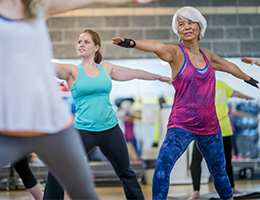
Sept. 10, 2019—Want to age well? Then here's one more reason to be active: Moderate exercise may delay the development of biomarkers of Alzheimer's disease in at-risk adults.
That's the promising news from three studies presented at the 2019 annual convention of the American Psychological Association.
Biomarkers are physical signs of a disease. In Alzheimer's, they include brain changes that can be seen with imaging tests. They may occur before Alzheimer's causes symptoms.
The first study included 317 adults 40 to 65 years old. All of them had a likely family history of Alzheimer's.
Aging is by far the greatest risk factor for Alzheimer's. And the study found a rise in biomarkers tied to Alzheimer's in adults over 60 compared to younger ones. The older adults also had a decline in their cognitive abilities.
But in the older adults who exercised at least 30 minutes, five days a week at a moderate intensity, these effects of aging were much weaker.
The second study of 95 adults found that those with a greater risk of Alzheimer's also had a rise in biomarkers for the disease. But again, that effect was weaker in people who were the most aerobically fit.
And the third study? This was also a small one with 107 older adults enrolled. But it also found high levels of aerobic fitness may help protect against Alzheimer's. Being in shape slowed the progression of one biomarker in the active adults.
The bottom line: Moving more appears to help offset the risk of Alzheimer's disease caused by aging and genetic risk.
You never outgrow exercise
Learn more about the benefits of working out as you add years—and what types of exercise to focus on.